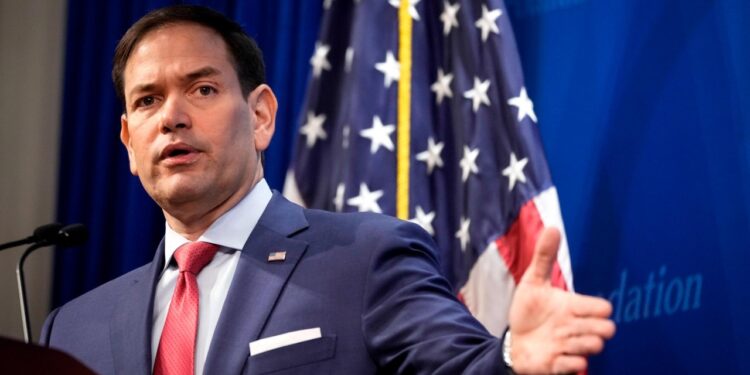US Secretary of State Marco Rubio refused on Sunday to confirm whether the United States had concrete intelligence that Iran was developing a weapon of mass destruction prior to the recent bombing of its nuclear sites. In a stark exchange during a televised interview, Rubio dismissed the need for such evidence, calling it “irrelevant” in light of what he described as Iran’s long-standing threat to regional and global security.
Rubio’s remarks have added to mounting concerns over the legality and strategic rationale behind the surprise US airstrikes on Saturday night. While the administration has framed the operation as a necessary preemptive measure, critics argue that bypassing both Congress and international consensus has dangerously escalated the Middle East crisis.
When pressed by journalists on whether the administration had definitive proof of an imminent Iranian nuclear breakout, Rubio deflected. “Whether they had a bomb ready or not is irrelevant,” he said. “The mere fact that Iran has the capacity, the infrastructure, and the intent is enough. We could not sit back and allow them to get closer.”
His statement comes as Washington faces growing scrutiny from allies, legal scholars, and even some lawmakers within the US. Senate Democrats have voiced alarm over the apparent absence of a clear intelligence basis for the strike, warning that such a precedent undermines international norms and congressional oversight. Senator Chris Murphy labelled the attack “an unauthorised act of war,” while Representative Barbara Lee called Rubio’s comments “deeply disturbing.”
Iran, for its part, has remained defiant, condemning the bombing as a breach of sovereignty and a provocation. State media claimed that key enrichment facilities sustained damage, though operations would continue. The Iranian military has since raised its alert level, while proxy groups across the region have threatened retaliation.
European capitals have reacted with alarm. France and Germany reiterated their call for de-escalation, with French President Emmanuel Macron stating that “evidence, not suspicion, must guide military action.” The EU has called for an urgent UN Security Council meeting to examine the legal justification of the strike.
Rubio’s comments reflect a more hawkish shift in the Biden administration’s rhetoric since the attack. Previously focused on deterrence and diplomacy, the tone has veered closer to pre-emptive defence doctrine — a move that harks back to the US invasion of Iraq in 2003. For many observers, the invocation of nuclear fears without presenting corroborating evidence brings uncomfortable parallels.
In financial markets, Rubio’s remarks fuelled anxiety over the trajectory of US foreign policy. Gold prices rose again on Monday, and oil markets remain volatile, reflecting the heightened geopolitical risk.
As tensions rise, Rubio’s framing of the Iranian threat as justification in itself — regardless of current nuclear intent — may signal a broader willingness within the administration to operate without clear public intelligence. That approach, analysts warn, could weaken alliances and embolden adversaries.
newshub finance



Recent Comments